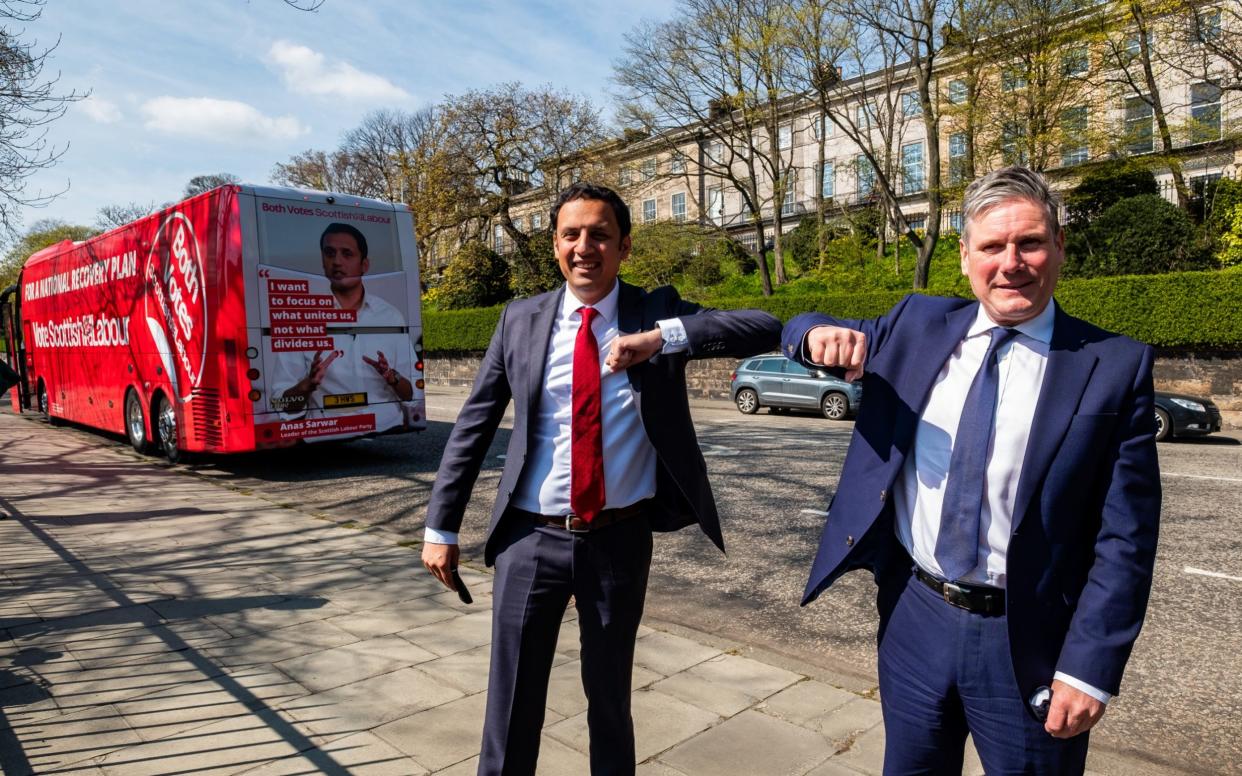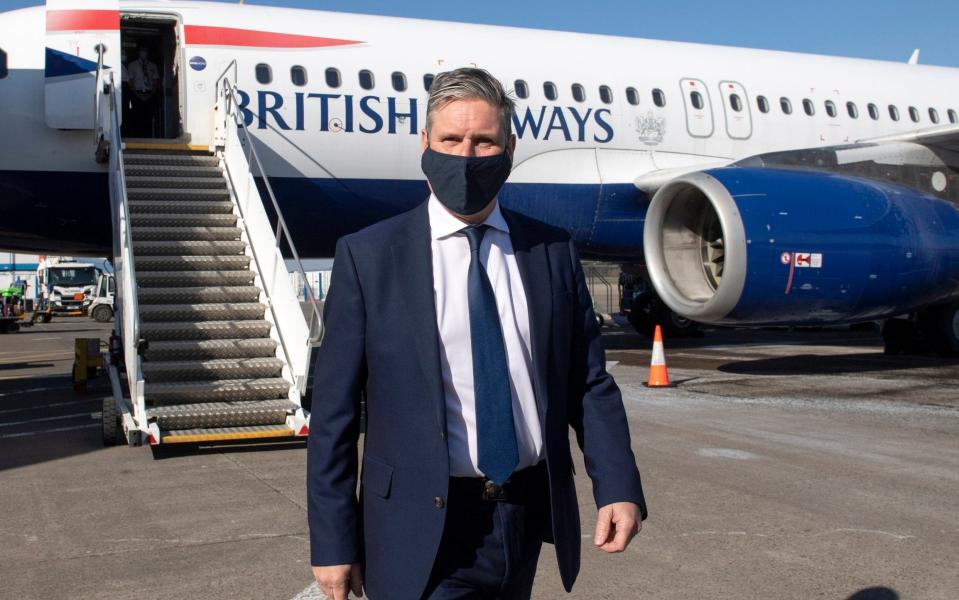Labour accused of refusing to rule out second Scottish independence referendum

- Oops!Something went wrong.Please try again later.
- Oops!Something went wrong.Please try again later.
Keir Starmer and Anas Sarwar have been accused of refusing to rule out another Scottish independence referendum as a new survey suggests that 60 per cent of Labour supporters back another poll.
The YouGov study, which spoke to 1,073 Labour members between March 17 and March 24, revealed that a majority back a second referendum “in principle” in the next few years, while 56 per cent think the party should too.
It also found that while a majority of supporters in the rest of the UK believe there should be another vote, just 31 per cent in Scotland feel the same - with 61 per cent against the idea and 8 per cent undecided. However, the weighted sample in Scotland for the poll was just 43 people.
Anas Sarwar has repeatedly stated that he does not support independence or a second vote, and insists that the next parliamentary session at Holyrood should focus on the recovery from Covid-19 rather than constitutional arguments.
However, on a visit to Edinburgh Airport on Friday, Sir Keir Starmer said Labour would “obviously” have to “assess the situation afterwards” if Holyrood returned a majority of pro-independence MSPs in May, but insisted a referendum should not be a priority.
Labour leader @Keir_Starmer has joined @AnasSarwar on the #SP21 campaign trail in Scotland
What happens if there’s a pro-independence majority after May 6th?
He says “obviously, we’ll have to assess the situation afterwards” but insists it shouldn’t be a priority right now pic.twitter.com/fG4KfZWJCd— Alan Smith (@Political_AlanS) April 16, 2021
"Labour Party members in Scotland and across the UK are focused on a national recovery - not playing cheap games, not going back to the old arguments, I can leave that to the SNP and the Tories,” he said.
But the Scottish Tories have accused both leaders of refusing to “clearly say no” to another vote.
“When Nicola Sturgeon demands indyref2, and she absolutely will if she wins a majority, it looks like Labour will back down,” said Annie Wells, their candidate for Glasgow.
“This is more proof that Labour cannot be trusted to stand up to the SNP and stop another referendum. They are more interested in cosying up to the SNP than opposing them,” she added.
Meanwhile, the SNP have accused Sir Keir of being “out of touch” with both Scotland and his own party members who “overwhelmingly support Scotland’s right to choose our own future”.
“The Labour Party ruined its reputation in Scotland by backing Boris Johnson’s hard Brexit, supporting austerity cuts, imposing Trident nuclear weapons, and working hand-in-hand with the Tories in Better Together. It risks falling into terminal decline if it continues to side with Boris Johnson to deny democracy,” said SNP deputy leader Keith Brown.

It comes as Labour has called for a recovery plan for Scotland’s beleaguered aviation industry, which this week warned that Scots could be forced to travel to London for flights abroad without urgent action.
Meeting with Edinburgh Airport’s chief executive Gordon Dewar on Friday, Sir Keir and Mr Sarwar called for the aviation sector to have a transitional support fund as travel returned to pre-Covid levels, limiting the unemployment resulting from low passenger numbers.
Mr Dewar said SNP ministers had failed to provide any plan for how international travel could resume when conditions allow, and described the mood at the airport as “downbeat”.
“There needs to be a plan for the recovery,” Sir Keir told journalists. “That's why here in Scotland the central focus has to be on the recovery and that's why Scottish Labour are today launching this 170,000 jobs package for the future."
Mr Sarwar said: "It's going to take time to get us back to even pre-Covid levels, never mind going beyond those levels, and that's why we need to have support for businesses across the country, that includes support for the aviation industry.
"So we can have people coming to Scotland, enjoying Scotland, spending money in Scotland and doing trade in Scotland if we are going to come through this as a stronger and fairer nation."

